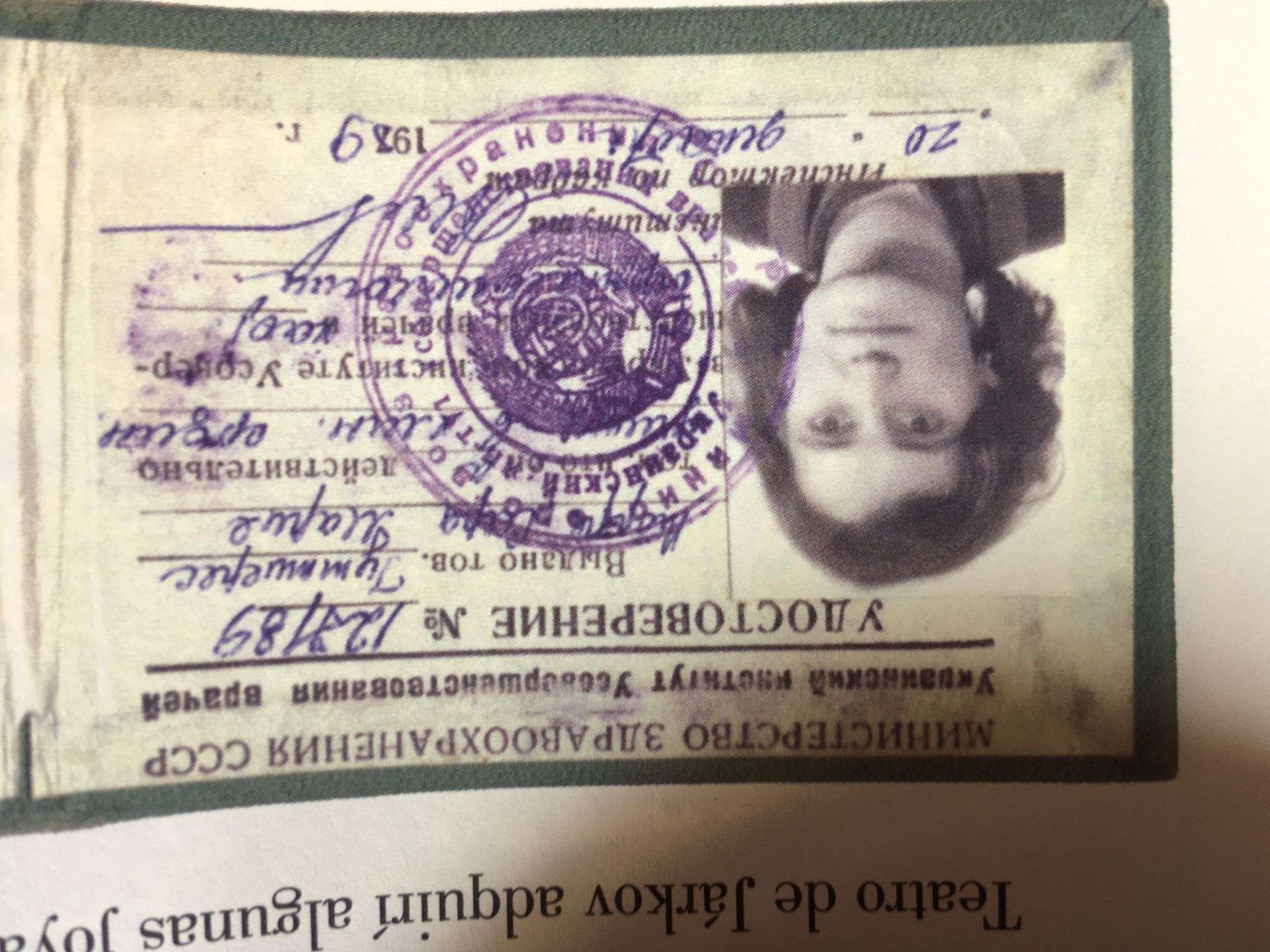The last summer of the USSR

For Vladimir Putin, the greatest event of the 20th century was the Russian Revolution of 1917. The Russian president immediately adds that the most unfortunate thing that happened in the 20th century was the demise of the Soviet Union. The end of 2021 will mark the thirtieth anniversary of that resounding collapse, which caught all analysts unawares and made fools of the supposedly best Kremlinologists of the time.
There was one Spaniard, Sara Gutiérrez, who lived through that experience from 1989 to 1996. After finishing her degree in Medicine, she decided to specialise in Ophthalmology in Russia, attracted by the fame that the media promoted about the supposedly great advances in Soviet research. She also received the Extraordinary Prize at the University of Oviedo for her entire academic career.
The confinements of the pandemic have encouraged her to recall those decisive years and to start writing about them. Now he teaches and delights us with one of the best adventures he had during those three years in a decaying USSR. Her book, El Último Verano de la URSS (Ed. Reino de Cordelia, 245 pages), is the narration of a whirlwind trip in 1991, from the Ukrainian city of Kharkov to the Baltic, and from there to the Black Sea, crossing five countries, then federated republics, on the verge of independence.

Sara Gutiérrez was not an accredited foreign journalist, but merely a student on a scholarship from the Russian Ministry of Education, with no official permission to travel to Leningrad, which a fortnight earlier had been renamed St. Petersburg, nor to Tallinn, Riga, Vilnius, Lviv, Kiev and Odessa. Seven cities in five republics where the red stars of the hammer and sickle were beginning to coexist with McDonalds hamburgers, thanks to perestroika, the policy of openness initiated by Mikhail Gorbachev.
Nothing is impossible for those who know what they want and set about it with undaunted tenacity. Sara Gutiérrez from Asturias decided to take advantage of the night trains, where surveillance was relaxed, to travel and rest as much as she could, given that, due to her circumstances as a scholarship student, she could not stay in the few decadent hotels in the Soviet system at the time. She thus gained time to travel around the cities on her journey and to observe and mingle with the people, whom she could interrogate without arousing suspicion thanks to her command of the Russian language. Any simple denunciation would have meant losing her scholarship and being sent back to Spain after the usual stint in the dungeon and the skilled interrogations of the KGB.
Much to her regret, as she herself confesses and describes in the book, she finally made the trip with an Uzbek colleague who, clinging to her like a limpet, discussed all the issues of the clash between systems as antagonistic as Western capitalism and communism, and essentially about personal freedom and autonomy, in simple but highly intense dialogues. The Uzbek Yulduz and Sara will find themselves at the first anti-Soviet barricades in Riga, or involved in the gigantic independence demonstration in Kiev. Uncertainty was the common denominator of the occasional interlocutors on their journey, all of them aware that something was brewing in the bowels of the USSR.

The story is peppered with anecdotes of everyday life in the USSR, from the sudden formation of queues of hundreds of people as soon as someone opens the boot of their rickety car and offers some kind of goods, to the astonishment of locals and strangers alike that a Spanish citizen, a Westerner at that, should show them with practical examples the advantages of using disposable paper panties on long journeys with very few places in which to wash up decently. The meeting with desperate and uprooted citizens fleeing the nuclear disaster in Chernobyl was particularly difficult; this April it will be 35 years since that explosion, the highly polluting consequences of which affected the whole of Europe.
All of this alternates with such sensitive sensations as the impression his Uzbek travelling companion had when she saw the sea for the first time. But, above all, the book maintains the tension of a summer that was to be the last of a collective dream, that of communism, which was an illusion, as a supposed embodiment of paradise on earth, for millions of people, but which was also an unbearable nightmare for so many others, who experienced in their flesh and in their lives the practical reality of Soviet collectivism. And, as the author herself points out, for herself and her Uzbek friend, it was the beginning of almost everything.

Sara Gutiérrez is not shy about admitting that she herself was unaware of the significance of the times she was living through, and that she only realised it when, during a holiday in her native Oviedo, she read that Mikhail Gorbachev, the last General Secretary of the Communist Party of the USSR, had been kidnapped and forced to sign the final dissolution of the Soviet Union on 25 December 1991.
The book has a special attraction: the illustrations by Pedro Arjona, the graphic designer who helped to renew Spanish comics with a complex and mature work characterised by its graphic radicalism, author, together with the writer Jorge M. Reverte, of numerous comics set in the Transition. In addition to his intense drawings, Arjona designs and distributes through the pages of the book the documents and graphic testimonies of that unrepeatable adventure.











